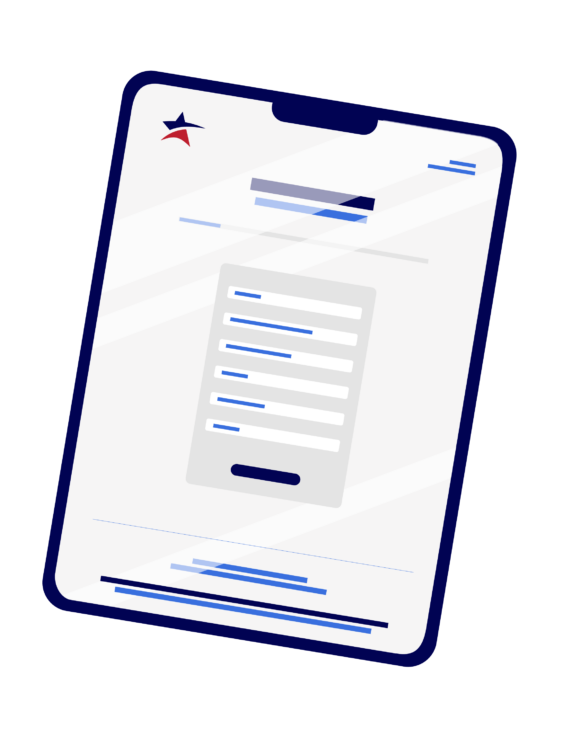
A business line of credit with EIN only is a flexible borrowing option that allows businesses to access funds using just their Employer Identification Number (EIN), bypassing personal credit checks.
Obtaining a business line of credit using EIN only is a pivotal strategy for businesses aiming to separate personal and business finances. While traditional lending methods often require personal credit checks, this approach is unique as it focuses on the EIN – a unique nine-digit number assigned by the IRS to businesses for identification purposes.
One of the compelling reasons businesses opt for a line of credit with EIN only is to shield personal credit. This financing method empowers companies to acquire necessary funds for operational costs, capital expenditure, or business expansion without impacting the owners’ personal credit scores. Business credit line EIN-only lenders evaluate the creditworthiness of the business based on its EIN, which can be highly beneficial for business owners striving to maintain a healthy personal credit score.
Understanding EIN in Business Line of Credit
An Employer Identification Number (EIN) is the key identifier used by lenders in issuing a business line of credit with EIN only, helping businesses separate personal and corporate finances.
An Employer Identification Number (EIN) is essentially a Social Security number for your business. Just as your Social Security number is used to identify you as an individual, the EIN identifies a business as a legal entity. Lenders can use this number to access a business’s credit history when assessing eligibility for a business line of credit with EIN only.
When a company applies for a business line of credit using EIN only, the lender will examine the business’s credit profile associated with that EIN. This includes past loan repayment history, existing debt, and any public records like bankruptcies or tax liens. EIN-only lenders do not consider the personal credit history of the business owner in this process, which is a significant advantage for business owners who want to keep personal and business finances distinct.
Importance of an EIN
An Employer Identification Number (EIN) is critical for businesses, as it significantly contributes to their ability to secure a line of credit, maintaining distinct business and personal finances.
Diving deeper, an Employer Identification Number (EIN) is more than just a requirement for tax purposes. In the context of obtaining a business line of credit, an EIN holds considerable importance. This unique nine-digit number issued by the Internal Revenue Service (IRS) plays a significant role in separating your personal and business finances, providing a distinct identity for your enterprise in the financial landscape.
Having an EIN fortifies your business’s credibility in the eyes of lenders. It establishes your enterprise as a separate legal entity and showcases its ability to bear financial responsibilities. This distinction is essential when applying for a business line of credit, as lenders will primarily assess the credit history associated with the business’s EIN rather than the personal credit history of the owner
An EIN also allows businesses to maintain their privacy. By using an EIN in credit transactions, businesses can avoid providing personal information, which reduces the risk of identity theft.
How to Get a Business Line of Credit Using EIN Only?
Obtaining a business line of credit using only your EIN involves a series of steps:
- Ensure Your Business is Legally Established: The first step in obtaining a business line of credit with EIN only is to ensure your business is legally established. This may include creating an LLC or Corporation, getting a business license, or other forms of business registration.
- Obtain Your EIN: Apply for an EIN from the Internal Revenue Service (IRS). This is a straightforward process that can be completed online on the IRS website.
- Open a Business Bank Account: After obtaining your EIN, you’ll need to open a business bank account. This helps further separate your business and personal finances.
- Establish Business Credit History: To increase your chances of approval, establish a credit history in your company’s name. This could involve opening a business credit card or trade lines with vendors that report to business credit bureaus.
- Apply for the Business Line of Credit: Once you have established your business credit, you can apply for a business line of credit using your EIN only. Lenders will use the credit history associated with your EIN to determine your eligibility.
Remember, when applying for a business line of credit, it’s essential to have your business documentation in order, including your EIN, business registration, and financial statements. Each lender may have different requirements, so it’s crucial to review these before applying.
Tips for a Successful Application with EIN Only
In applying for a business line of credit using only your EIN, success hinges on several factors. The key is establishing your business credit, maintaining financial integrity, and meeting lenders’ requirements.
Tips for a successful EIN-only line of credit application include:
- Establish and Build Your Business Credit: When using your EIN only to apply for a business line of credit, your business credit history becomes paramount. Start by opening business accounts with vendors who report to business credit bureaus. Make sure to pay on time or, better yet, early.
- Maintain Accurate and Up-to-date Records: Accurate financial records are crucial. Make sure your income, expenses, and debts are meticulously recorded and updated. This not only shows that your business is well-managed, it also makes it easier for lenders to assess your creditworthiness.
- Keep Personal and Business Finances Separate: Having distinct boundaries between your personal and business finances can improve your creditworthiness. It demonstrates to lenders that your business operates professionally.
- Meet All Lender Requirements: Understand what lenders look for when providing a business line of credit. This may include a solid business plan, a certain amount of revenue, or being in business for a specific period.
- Seek Professional Advice: Speak with financial advisors, business credit professionals, or even a mentor experienced in business financing. Their advice can be invaluable in navigating the application process.
While the journey to securing a business line of credit using your EIN only can be challenging, these tips can improve your chances of a successful application. Always remember, every business’s circumstances are unique; tailor these tips to suit your specific situation.
Should You Get a Business Line of Credit with EIN Only?
Choosing to apply for a business line of credit using only your Employer Identification Number (EIN) is a significant decision that depends on unique business needs and circumstances.
Securing a business line of credit with EIN only can be advantageous for many businesses, particularly if they have established a solid business credit history. It provides an opportunity to access funds while keeping personal credit separate, thus protecting personal assets and credit scores from potential business risks.
However, applying for a business line of credit using only your EIN can be more challenging for newer businesses or those without a strong business credit history. It requires careful preparation, including meticulous financial record-keeping, solid business planning, and a history of prompt payments to any existing creditors.
Businesses considering this option should be aware that some lenders may still require a personal guarantee, especially for small businesses. This means that despite using your EIN, your personal assets may still be at risk if the business fails to repay the loan.
How Do You Qualify for a Business Line of Credit with EIN?
Business lines of credit with EIN-only lenders have the following qualification requirements:
- Length of Time in Business: Lenders often require businesses to have been operational for a specific duration, typically a minimum of one year. This requirement reassures lenders that the business is stable and capable of repaying borrowed funds.
- Minimum Revenue Requirements: A business must typically meet specific annual revenue thresholds to be considered for a business line of credit. This amount varies by lender, but it’s often set around $50,000 to $100,000.
- Business Credit History: A solid business credit history, demonstrated through responsible credit use and prompt payment to creditors, can strengthen your application for a business line of credit. While using EIN only, lenders consider the business credit score, not personal credit scores.
- Financial Documents: Lenders may also require financial statements, such as income statements, balance sheets, and cash flow statements, to assess the financial health of your business.
- Operating Industry: Some lenders may have restrictions or preferences based on the industry in which your business operates. High-risk industries and industries that are not federally legal can struggle to get approved.
How to Apply for a Business Line of Credit with EIN?
The six steps to apply for a business line of credit with EIN are:
- Check your Eligibility: Before you start the application process, ensure your business meets the lender’s eligibility criteria. This can include time in business, minimum revenue, and business credit history.
- Prepare your Documentation: Gather your business financial statements, EIN documentation, and any other required paperwork. This could include balance sheets, income statements, cash flow statements, and your EIN confirmation letter.
- Choose a Lender: Research various lenders to identify which offer lines of credit using an EIN only. Consider factors like interest rates, repayment terms, and lender reputation.
- Fill Out the Application: Many lenders have online applications. You’ll provide information about your business, your EIN, and financial details.
- Submit Financial Documents: Upload or send the lender your prepared financial documents. Make sure all information is current and accurate.
- Review and Accept the Offer: If approved, the lender will present a loan offer. Carefully review the terms before accepting. Look at the interest rate, repayment terms, and any additional fees.
- Set Up the Line of Credit: Once you accept the offer, the lender will set up your line of credit. This can include setting up an online account for your business to access funds.
How to Apply With National Business Capital
Streamlined financing for fast-paced entrepreneurs.
-
1.Apply Securely Within Minutes
Move through our streamlined application within minutes and upload your business documents with zero risk.
Apply Now -
2.Review Your Offers
Compare your offers with expert advice from our team and select the best one for your specific circumstances.
-
3.Receive Your Money
Seize an immediate opportunity to grow your business or tackle a new challenge with confidence.




Joe Camberato
Joe Camberato is the CEO and Founder of National Business Capital. Beginning in 2007 out of a spare bedroom, Joe and his team have financed $2+ billion through more than 27,000 transactions for businesses nationwide. He’s made it his calling to deliver the educational and financial resources businesses need to thrive.
Accelerate Your Success
Seize the opportunity to grow your business and gain access to the capital you need.





